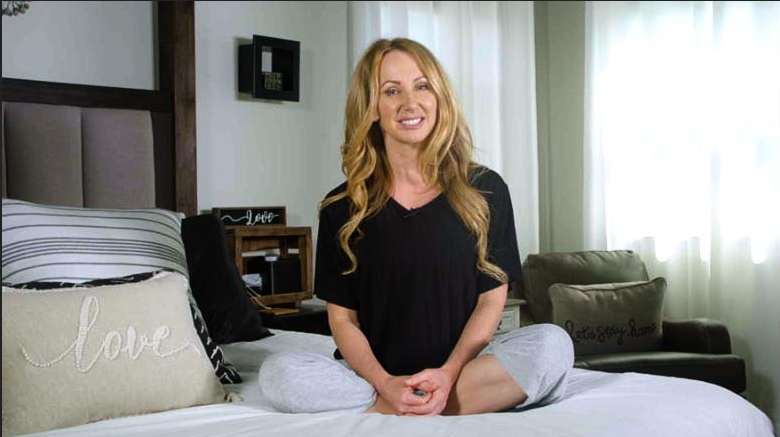You’re catching an early-morning flight tomorrow. Your boss, an early bird, has set a weekly meeting for an ungodly hour. School is starting, and you have to get the family moving in the morning, so you’ll be getting up before dawn. You’d love to sleep in but find yourself waking up early and then having trouble getting back to sleep. That’s when Dr. Phyllis Zee, director of the Center for Circadian and Sleep Medicine at Northwestern University Feinberg School of Medicine in Chicago, says not to worry about it. “If you’re unable to fall asleep, don’t worry about it,” she said. “It will not help.” Dr. Raj Dasgupta of the Mayo Clinic echoed her advice: “Accept that it is part of your life now; just keep going.”
“My overall guidance is ‘don’t compel it’ since that stress over getting those zzz’s will start to ruminate to you, exacerbating the situation,” said Dasgupta, an academic partner of clinical medication at the Keck School of Medicine at the University of Southern California.
“Actually frequently the harder we attempt to unwind and progress into rest, the more we stress that we’re wasting valuable time, making the subtle ‘great night’s rest’ more challenging to get, ” he said through email.
If your rest chronotype – – the time your body is normally modified to need to rest – – is that of an evening person (late to bed, late to rise), those evenings (and ensuing days) can be particularly unpleasant, specialists say.
Here are a few time tested tips from specialists on the best way to facilitate those “kindly let-me-get-to-rest” stresses.
-
Try not to go after the inconceivable
In the first place, except if you’re a morning songbird, don’t attempt to nod off at 9 p.m., which might be excessively right on time for your body clock. It just positions you to worry.
All things being equal, “begin diminishing lights at 8 p.m. to 9 p.m.,” Zee exhorted, and hold back nothing p.m. sleep time.
You likewise need to keep away from blue light, which fools your cerebrum into “believing it’s still daytime. This forestalls the arrival of key chemicals like melatonin, which assist you with dozing,” Dasgupta said.
“Blue light is discharged by electronic gadgets like cell phones and PCs,” he said, so make certain to keep away from those as well as brilliant lights during the two hours before sleep time.
-
Reflection, care and relaxing
Being fretted over resting is “an immense hindrance from getting invigorating rest,” Dasgupta said, and can “deteriorate existing rest issues like sleep deprivation.”
Retaliate with care and contemplation to advance smoothness, he recommended. “(These practices) can assist with calming the brain and body, making the change into rest more straightforward and ideally charming,” he said.
One of the most amazing ways of assisting you with nodding off is to zero in on breathing, specialists say.
“One strategy is the ‘4-7-8 breathing technique,’ which has been displayed to lessen pressure,” Dasgupta said. “Take a full breath for four seconds. Pause your breathing for seven seconds, then leisurely delivery your breath and breathe out while counting from one to eight. Rehash these means a few times and afterward respite and notice in the event that you feel more loose.”
-
Present sunlight
At the point when that all-too soon caution goes off, promptly turn on splendid lights, Zee said. That tells your mind it’s light and turns down melatonin creation.
Then, at that point, get into some daylight in a hurry, specialists recommend.
“Regular daylight during the day helps keep your circadian musicality sound,” Dasgupta said. “This further develops daytime energy as well as evening rest quality.”
-
Plan a power rest
You should design a 20-to 30-minute power rest in the early evening that day and afterward make an honest effort to hit the hay before that evening too, Zee said. Your “rest drive” will be high, she expressed, due to being “sleepless the prior night.”
It will be “more straightforward to nod off around 10 p.m. to 10:30 p.m. furthermore, get some make up for lost time rest,” Zee said.
-
Keep away from liquor and desserts
Try not to drink caffeine after lunch and keep away from liquor close to sleep time, “as both can disturb rest,” Dasgupta said. “On the off chance that ravenous after supper, keep snacks little, sugar free and effectively edible in order to not disturb rest.”
That late evening call
Imagine a scenario where you’ve done this and cheerfully rested off, however you live in California and confounded family members call you at 6 a.m. or on the other hand 7 a.m. ET – – which would be 3 a.m. or then again 4 a.m. PT?
Here are the guidelines for that situation, as per Dr. Vsevolod Polotsky, teacher of medication and head of rest research in the Division of Pulmonary and Critical Care Medicine at the Johns Hopkins University School of Medicine.
- Try not to turn the light on.
- Attempt to quiet down, finish your discussion quickly and hit the sack.
- In the event that you can’t fall back to snooze under 10 minutes, go to another room, turn on a faint light and attempt to peruse an exhausting book. (No electronic gadgets permitted, Polotsky said. They transmit blue light that will awaken you.)
- Try not to browse your email or instant messages. As a matter of fact, don’t utilize your cell phone, PC, tablet or TV (once more, because of the blue light feeling).
- Try not to do dishes, head outside or exercise.
- Reflect or unwind and contemplate something lovely.
So unwind, sit back and relax and good night!



